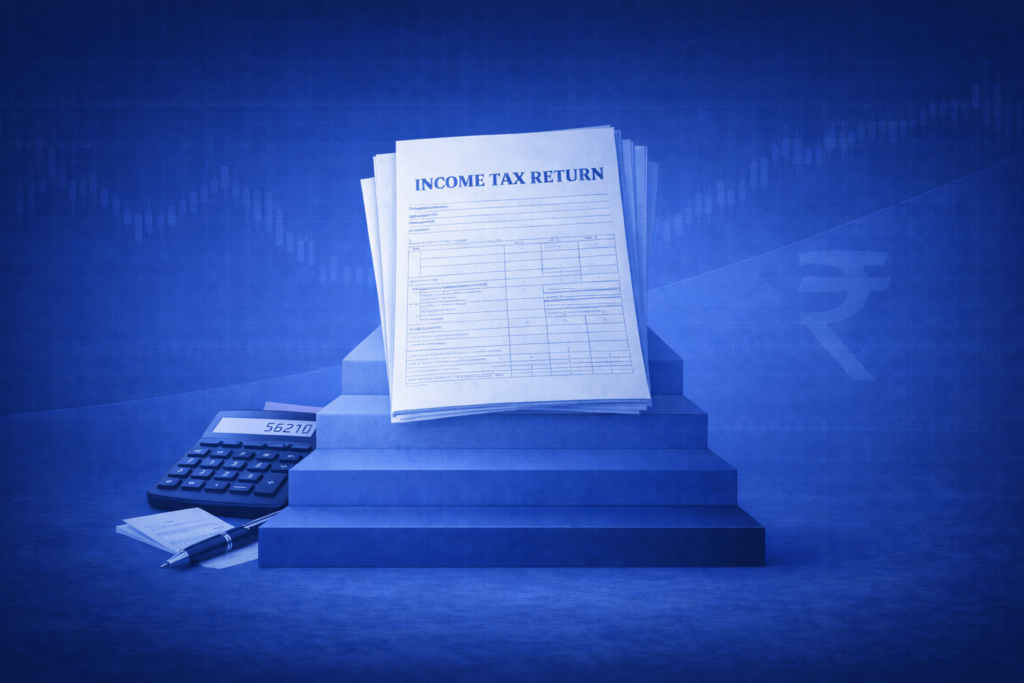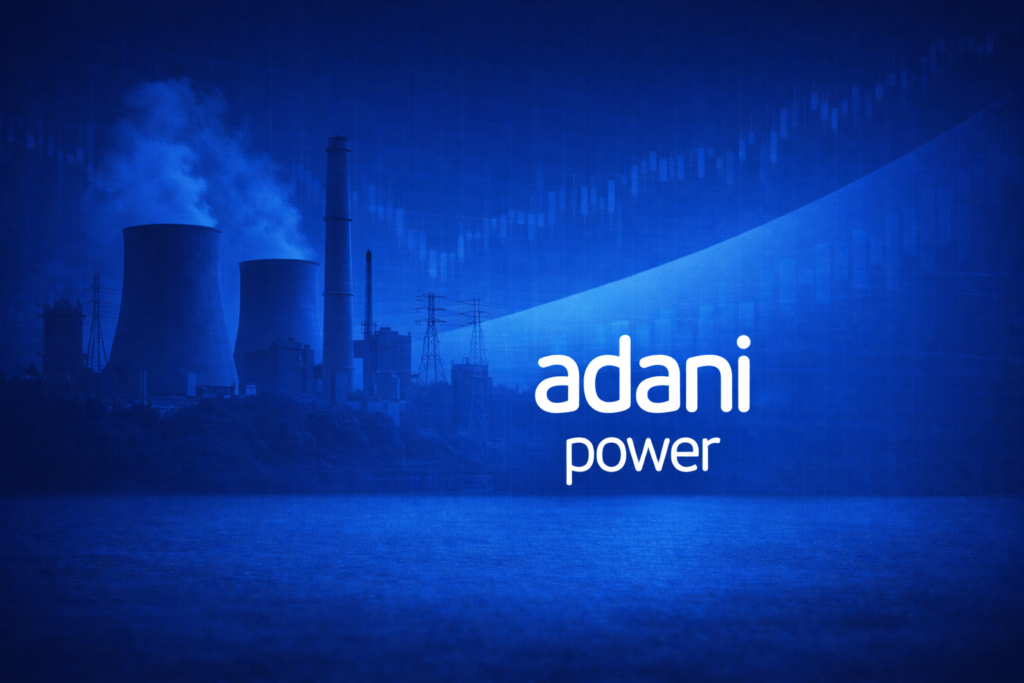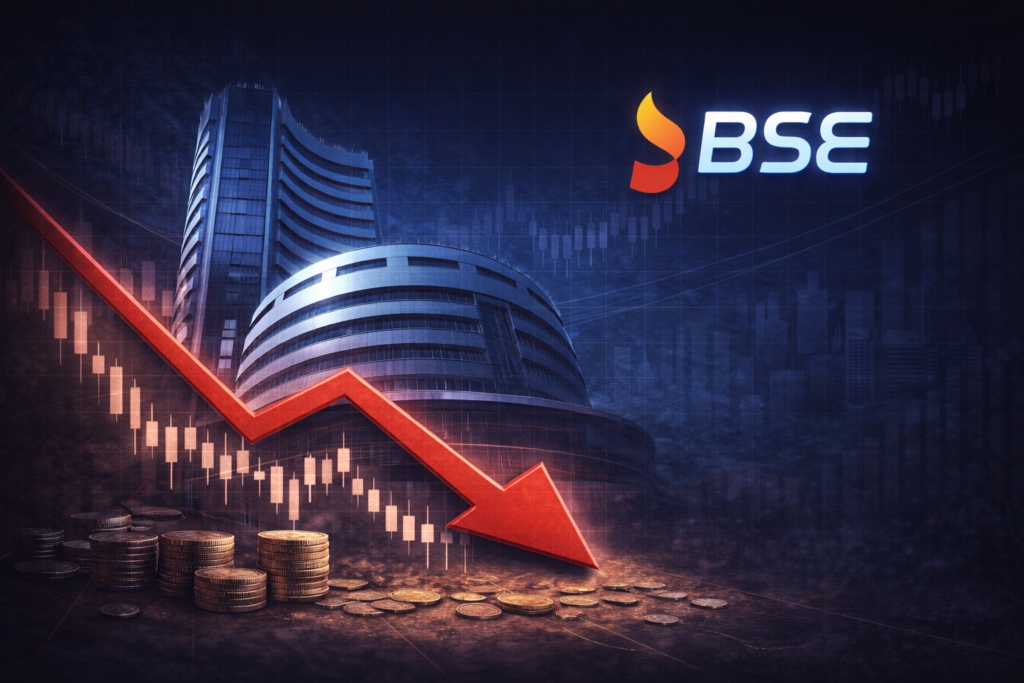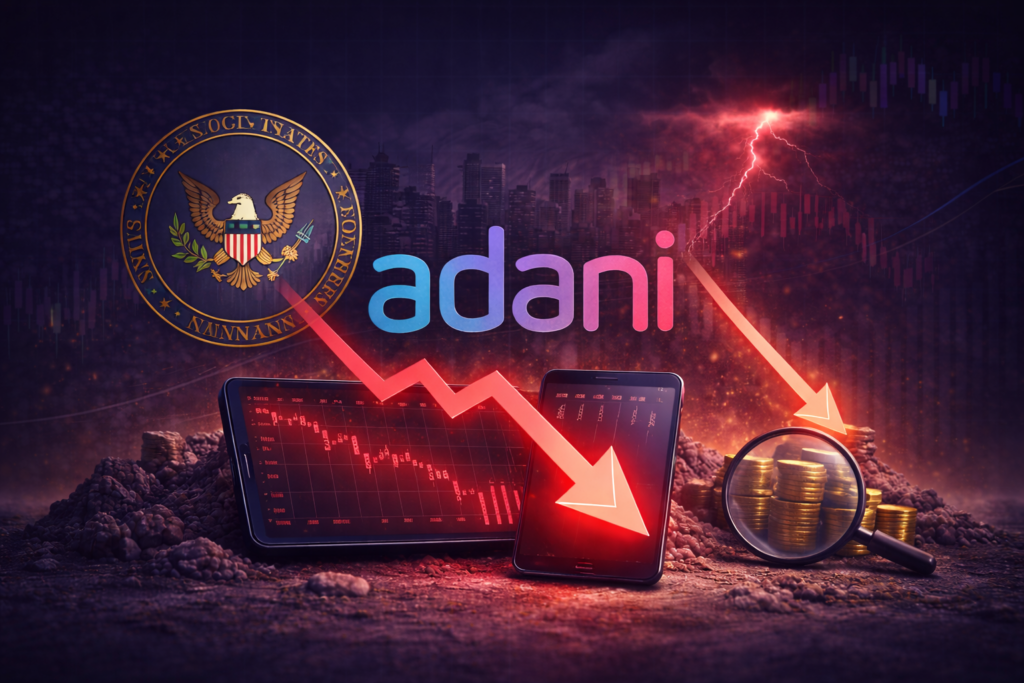Quick Summary
These are the best infrastructure stocks to invest in India for 2025:
Larsen & Toubro (L&T) – Market leader in EPC in construction, defence, and smart infra
Adani Ports & SEZ – Largest port developer in India with expanding logistics presence
IRB Infrastructure – Market leader in road development with BOT and HAM model assets
NCC Ltd – Diversified infrastructure player with businesses in housing, road, and water
GMR Infrastructure – A Large player in airport and energy infrastructure
Engineers India Ltd (EIL) – State-owned engineering consultancy in oil & gas
NBCC (India) Ltd – PSU involved in the redevelopment of real estate and government construction
Why It Matters:
India’s speedier urbanization, highest government capital spending, National Infrastructure Pipeline (NIP), and Gati Shakti programs are fuelling enormous investment in transport, energy, and logistics infrastructure. These players are best placed to enjoy the sector’s multi-decade growth tale.
Top Infrastructure Stocks
| Stock Name (₹) | Market Cap (₹) | P/E Ratio | EPS (₹) | 52 Week High (₹) | 52 Week Low (₹) |
|---|---|---|---|---|---|
| Larsen & Toubro Ltd. | 5,717,732,328,000 | 35 | 118 | 4,199 | 2,965 |
| IRB Infrastructure | 265,836,782,764 | 4 | 11 | 54 | 39 |
| Ircon International Ltd. | 143,494,502,494 | 23 | 7 | 226 | 134 |
| Rail Vikas Nigam Ltd. | 644,375,405,548 | 56 | 6 | 448 | 301 |
| Engineers India Ltd. | 115,331,119,284 | 21 | 10 | 255 | 142 |
| Techno Electric & Engg. | 121,527,261,341 | 25 | 42 | 1,654 | 785 |
| NBCC (India) Ltd. | 267,300,000,000 | 44 | 2 | 131 | 71 |
| KEC International | 160,518,539,700 | 24 | 26 | 947 | 601 |
Investing in infrastructure stocks can offer stable returns, but selecting the right companies requires careful analysis. Factors like financial strength, project execution, and sector-specific demand are crucial in determining a stock’s potential. But before that, let’s look at some factors you should consider before making an investment decision.
Factors to Consider Before Investing in Infra Stocks
While the infrastructure sector offers stability, it comes with risks like regulatory changes, cost overruns, and project delays. Therefore, understanding key factors can help you make informed investment decisions. These include:
Market Trends and Government Policies
Infrastructure stocks are closely tied to government spending and economic policies. Programs like the National Infrastructure Pipeline (NIP) and Gati Shakti drive large-scale investments in roads, railways, and energy projects. Monitoring budget allocations, policy shifts, and public-private partnerships can help you gauge future growth potential.
Risk Assessment and Long-Term Growth
Infrastructure projects require heavy capital investment and have long payback periods. Assessing a company’s debt levels, cash flow, and project pipeline is crucial. Companies with excessive debt may struggle with financing costs, especially when interest rates rise. Look for firms with strong balance sheets and stable revenue streams.
Key Sectors in Infrastructure Stocks
Infrastructure stocks span multiple industries, each with its own risk and return profile:
- Transportation: Roadways, railways, airports, and ports. Growth depends on freight demand and government projects.
- Energy: Includes power generation, transmission, and renewable energy. The shift to solar, wind, and green hydrogen creates new opportunities.
- Telecom: Due to rising internet demand, investments in fibre networks, 5G infrastructure, and data centres are increasing.
- Urban Development: Metro projects, smart cities, and affordable housing initiatives are gaining momentum.
Infrastructure Stocks for 2025
Investing in infrastructure stocks can be smart, especially as governments and private companies continue developing roads, railways, airports, and power projects. These stocks belong to large-scale construction, engineering, and project management companies.
Here’s a list of infrastructure stocks to consider in 2024 and their key details to help you make informed decisions.
1. Larsen & Toubro Ltd. (L&T)
Larsen & Toubro is one of India’s largest multinational conglomerates, specialising in engineering, procurement, and construction (EPC) in the infrastructure, hydrocarbon, power, and defence sectors. The company also has a presence in information technology. L&T has a strong order book and is known for executing large-scale projects both domestically and internationally.
- Market Cap: ₹4,69,752.91 Cr
- P/E Ratio: 33.7
- ROE (Return on Equity): 13.69%
- 1-Year Return: -6.92%
L&T is a diversified company with a strong order book. While recent stock performance has been mixed, its fundamentals remain solid, making it a long-term prospect.
2. GMR Infrastructure Ltd.
GMR Infrastructure develops and manages airports, highways, power projects, and special economic zones (SEZs). The company has significant stakes in major airports, including Delhi and Hyderabad, and is expanding internationally. Its diversified portfolio and strong presence in airport infrastructure make it an important player in the sector.
- Market Cap: ₹7,996.16 Cr
- P/E Ratio: 4.45
- ROE: -8.27%
- 1-Year Return: +151.09%
GMR has seen strong stock performance, which is mainly driven by its airport business. However, its negative EPS (-2.11) and ROE (-8.27%) suggest financial challenges.
3. IRB Infrastructure Developers Ltd.
IRB Infrastructure specialises in highway and road construction, managing several Build-Operate-Transfer (BOT) projects. The company also operates in real estate, airport development, and road maintenance. Its extensive experience in the road sector and public-private partnerships (PPPs) positions it as a key player in India’s transportation network.
- Market Cap: ₹28,262.52 Cr
- P/E Ratio: 4.38
- ROE: 8.27%
- 1-Year Return: -19.73%
While IRB has expertise in road infrastructure, its stock performance has been weak. The company has a moderate return on equity (ROE) of 8.27%, generating decent profits from shareholders’ equity.
4. Ircon International Ltd. (IRCON)
IRCON started as a railway construction company and has since expanded into large-scale infrastructure projects, including highways and urban development. As a government-backed entity, it plays a crucial role in India’s railway modernisation and infrastructure development, securing contracts for complex projects.
- Market Cap: ₹15,057.66 Cr
- P/E Ratio: 19.74
- ROE: 15.76%
- 1-Year Return: -28.99%
Despite its expertise, IRCON has seen declining stock performance. However, with a strong ROE (15.76%) and government backing, it remains a key player in railway infrastructure.
5. Rail Vikas Nigam Ltd. (RVNL)
Rail Vikas Nigam Ltd. is responsible for infrastructure development, including new railway lines, electrification, and station redevelopment. The company benefits from strong government backing and continues to secure high-value railway projects across India.
- Market Cap: ₹75,342.20 Cr
- P/E Ratio: 58
- ROE: 20.39%
- 1-Year Return: +38.74%
RVNL has delivered strong returns, driven by government spending on railway infrastructure. Its high P/E ratio suggests that investors expect future growth.
6. Afcons Infrastructure Ltd.
Afcons Infrastructure operates across transportation, power, and industrial projects. The company has worked on some of India’s most critical infrastructure projects, including metro rail systems, bridges, and tunnels. Its expertise in handling complex engineering projects makes it a strong contender in the infrastructure space.
- Market Cap: ₹17,854.10 Cr
- P/E Ratio: 32.47
- ROE: 16.7%
- 1-Year Return: +2.37%
Afcons has a decent ROE (16.7%), but a negative PEG ratio (-1.17) suggests uncertain earnings growth.
7. Engineers India Ltd. (EIL)
Engineers India Ltd. is a government-owned entity that provides engineering and consulting services in sectors such as oil and gas, petrochemicals, and infrastructure. The company also undertakes turnkey projects and offers end-to-end solutions from planning to execution.
- Market Cap: ₹9,206.82 Cr
- P/E Ratio: 22.17
- ROE: 16.16%
- 1-Year Return: -20.58%
Despite its decline in stock price, EIL maintains a stable business model, with a 16.16% ROE, making it a steady investment in the engineering sector.
8. Techno Electric & Engineering Company Ltd. (TEECL)
Techno Electric is a major player in the power infrastructure sector, offering engineering, procurement, and construction (EPC) services. The company also engages in asset ownership, operations, and maintenance of power infrastructure projects, making it an integrated service provider.
- Market Cap: ₹12,031.19 Cr
- P/E Ratio: 31.55
- ROE: 13%
- 1-Year Return: +40.3%
TEECL has performed well over the past year, with a steady ROE (13%). However, a high PEG ratio (6.84) suggests that growth might slow down.
9. NBCC (India) Ltd.
NBCC, a government-owned Navratna company, operates in three main segments: real estate, project management consulting, and EPC contracting. It is responsible for several high-profile urban infrastructure projects, including smart cities and the redevelopment of government buildings.
- Market Cap: ₹22,607.10 Cr
- P/E Ratio: 45.1
- ROE: 23.01%
- 1-Year Return: +9.41%
NBCC has strong government backing and a high ROE (23.01%), but its expensive valuation makes it a long-term investment.
10. KEC International Ltd.
KEC International is a global infrastructure EPC company that operates in power transmission and distribution, railways, urban infrastructure, and oil and gas. It is part of the RPG Group and has a presence in over 100 countries, making it one of India’s leading infrastructure exporters.
- Market Cap: ₹22,335.51 Cr
- P/E Ratio: 47.95
- ROE: 3.67%
- 1-Year Return: +24.62%
KEC has a diverse business model, but its low ROE (3.67%) suggests that profitability needs improvement.
How to Choose the Best Infrastructure Shares?
Investing in infrastructure stocks requires careful evaluation of a company’s financial health, growth potential, and market position. Here are some key factors to consider before making an investment decision.
Key Financial Indicators to Analyse
- Market Capitalisation: Indicates the company’s overall valuation and stability.
- P/E Ratio (Price-to-Earnings Ratio): This ratio helps assess whether a stock is overvalued or undervalued compared to its earnings.
- ROE (Return on Equity): Measures how efficiently a company generates profit from shareholders’ equity.
- Debt-to-Equity Ratio: A lower ratio suggests financial stability, while a high ratio indicates potential risks.
- 1-Year Return: Provides insights into recent stock performance, but it should be evaluated along with long-term trends.
Evaluating Company Fundamentals and Growth Potential
- Order Book Strength: A strong order pipeline ensures future revenue visibility.
- Government Contracts & Policies: Many infrastructure companies benefit from government-backed projects and policies, which can drive long-term growth.
- Diversification: Companies exposed to multiple infrastructure sectors (transportation, energy, urban development) tend to be more resilient.
- Global Presence: Firms with international projects can have additional revenue streams and reduced reliance on domestic markets.
Future of Indian Infrastructure Stocks
The infrastructure sector in India is set for long-term growth, driven by government policies, private sector investments, and increasing urbanisation. As infrastructure plays a critical role in economic development, companies in this sector are expected to see steady demand.
Government Initiatives and Investments
- National Infrastructure Pipeline (NIP): The government has committed over ₹100 lakh crore for infrastructure development by 2025, focusing on roads, railways, power, and urban projects.
- PM Gati Shakti Plan: Aim to improve logistics and connectivity through multi-modal infrastructure projects.
- Smart Cities Mission: Investments in urban infrastructure to modernise cities and improve quality of life.
- Renewable Energy Push: The expansion of solar, wind, and hydro projects will create new opportunities for infrastructure firms.
Predictions for the Infrastructure Sector in India
- Increased Private Investments: More public-private partnerships (PPPs) are expected, reducing reliance on government funding.
- Growth in Transportation and Logistics: Expansion of expressways, metro projects, and ports will boost infrastructure companies.
- Rising Demand for Affordable Housing: Urbanisation will drive real estate and construction-related stocks.
- Shift to Sustainable Infrastructure: Companies investing in green infrastructure and clean energy will likely gain long-term traction.
The Bottom Line
Investing in Indian infrastructure stocks can be a strong long-term strategy, given the sector’s importance in economic growth. However, it’s essential to analyse financial indicators, company fundamentals, and government policies before making investment decisions. By staying informed and making data-backed decisions, you can maximise the potential of your investments in India’s growing infrastructure sector.
Platforms like Appreciate can also help you analyse US market trends and explore global investment opportunities. Download the app now!
Frequently Asked Questions (FAQs)
What are the best infrastructure stocks to invest in India right now?
The best infrastructure stocks in India include Larsen & Toubro (L&T), IRB Infrastructure, GMR Infrastructure, Adani Ports & SEZ, and NHPC. These companies have strong financials, government contracts, and growth potential.
How do I evaluate the performance of Indian infrastructure stocks?
To evaluate the performance of Indian infrastructure stocks, check revenue growth, order book size, EBITDA margins, debt-to-equity ratio, ROE & ROA, and stock price trends.
Platforms like Appreciate provide financial data and market insights for analysis.
What are the risks involved in investing in infrastructure shares?
The risks involved in investing in infrastructure shares include regulatory changes, high debt levels, project execution delays, economic slowdowns, and interest rate fluctuations. Monitoring government policies and financial health is crucial.
Which sectors contribute the most to India’s infrastructure stocks list?
The sectors that contribute the most to India’s infrastructure stocks list include construction and engineering, power and renewable energy, transportation and logistics, real estate and urban development, and telecom infrastructure.
How does government policy impact infra-stock investments in India?
Government policy impacts infra-stock investments in India through budget allocations, public-private partnerships (PPP), tax incentives, and regulatory reforms. Platforms like Appreciate help track policy changes affecting the sector.
Disclaimer
Disclaimer: Investments in securities markets are subject to market risks. Read all the related documents carefully before investing. The securities quoted are exemplary and are not recommendatory.























